The Belted Galloway cattle are a breed of beef cattle originating from Galloway in the west side of southern Scotland. It is a heritage breed and are well adapted to living on the poor upland pastures and windswept moorlands of the region.
The breed is also known by some other names such as Beltie, Oreo Cow and Panda Cow. Exact origins of the breed are unclear. But it is often surmised that the white belt of the breed may be a result of cross breeding with the Dutch Lakenvelder belted cattle.
The breed is named so mainly because of the belt. An association for the breed named the Belted Galloway Association was formed in 1921 in Scotland. And the name of the association was changed to the Belted Galloway Society in 1951.
The association keeps and records pedigrees for Belted Galloways and oversees the registration of White and Red Galloways.
Currently the Belted Galloway Cattle Society is guided by the United Kingdom and there is a thriving breeding program overseen. Mrs. McLean of East Kortright, New York first imported the breed to the United States.
The former known American Belted Galloway Breeders Society was formed in the United States on 1st July 1951, but it is now known as The US Galloway Society Inc.
The breed is currently listed with the American Livestock Breeds Conservancy as a “recovering” breed. And total population of the breed is gradually increasing. Read some more information about the breed below.

Belted Galloway Cattle Characteristics
Belted Galloway cattle are medium sized animals with white belt. The most visible characteristics of the breed is their long hair coat and the broad white belt that completely encircles their body.
They are naturally polled, that means they usually have no horns. They have coarse outer coat which helps them to shed the rain. And their soft undercoat provides insulation and waterproofing, enabling the animals to spend winter outside.
Dun color of the breed is also available which is caused by a mutation in the PMEL gene. The same mutation that causes silver dun and dun in Highland cattle.
Average live body weight of the mature Belted Galloway cows vary from 450 to 675 kg. And the mature cows on average weight between 770 and 850 kg. Photo and info from Wikipedia.
Uses
Belted Galloway cattle are actually a beef cattle breed. They are raised primarily for meat production.
Special Notes
The Belted Galloway cattle are larger, heavier and very hardy animals. They are of good behavior and generally are quiet in temperament.
The cows are excellent mothers, and they can protect their calves against perceived threats and predators very well. They are excellent grazers and are well adapted for rough grazing land and can utilize coarse grasses which other cattle breeds would usually avoid.
They are able to maintain good condition on less than ideal pasture, and produce a high quality beef product on grass alone. The breed is also often used as a dairy breed mainly due to their docile nature.
The cows are are pretty good milk producers and produce enough milk for their calves. They are noted for easy calving and their calving process is relatively free of complications.
The Belted Galloway cattle are quite healthy animals, and they have strong resistance against pink-eye, and congenital problems like dwarfism are almost unheard of in the breed.
This kind of durability with a high immune system is a desirable trait for the farmers who are willing to keep their herd healthy and sturdy. The breed is pretty slow grower, but they produce good quality meat.
Their meat is low in saturated fat and well marbled. Average carcass dressed weight is more than 60 percent of their live body weight.
Currently the breed is distributed in many countries around the world, but popular mainly in a number of countries including Australia, Canada, Ireland, Switzerland, United Kingdom and United States.
However, review full breed profile of the Belted Galloway cattle in the chart below.
| Breed Name | Belted Galloway | |
| Other Name | Also known by some other names such as Beltie, Oreo Cow and Panda Cow | |
| Breed Purpose | Mainly meat | |
| Special Notes | Well adapted to native climates, very good for meat production, very hardy, great quality meat with low saturated fat | |
| Breed Size | Medium | |
| Bulls | 770-850 kg | |
| Cows | 450-675 kg | |
| Climate Tolerance | All climates | |
| Coat Color | Black with white belt | |
| Horned | No | |
| Milk Yield | Good | |
| Rarity | Common | |
| Country/Place of Origin | Scotland |
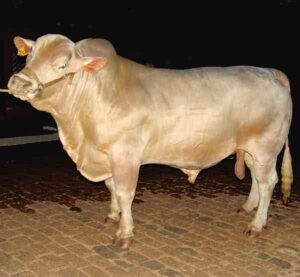
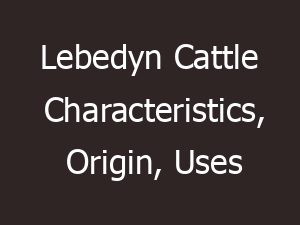
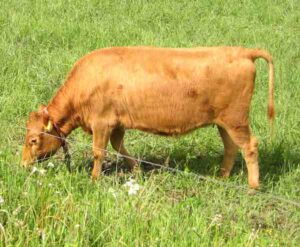
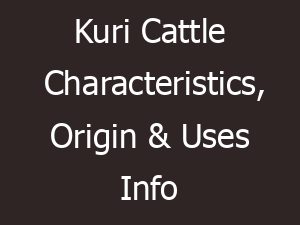
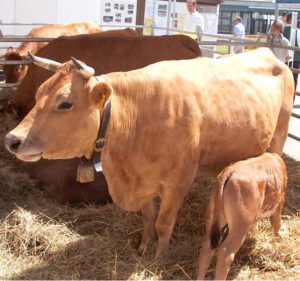
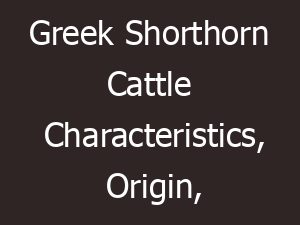
It is amazing. Thank you very much